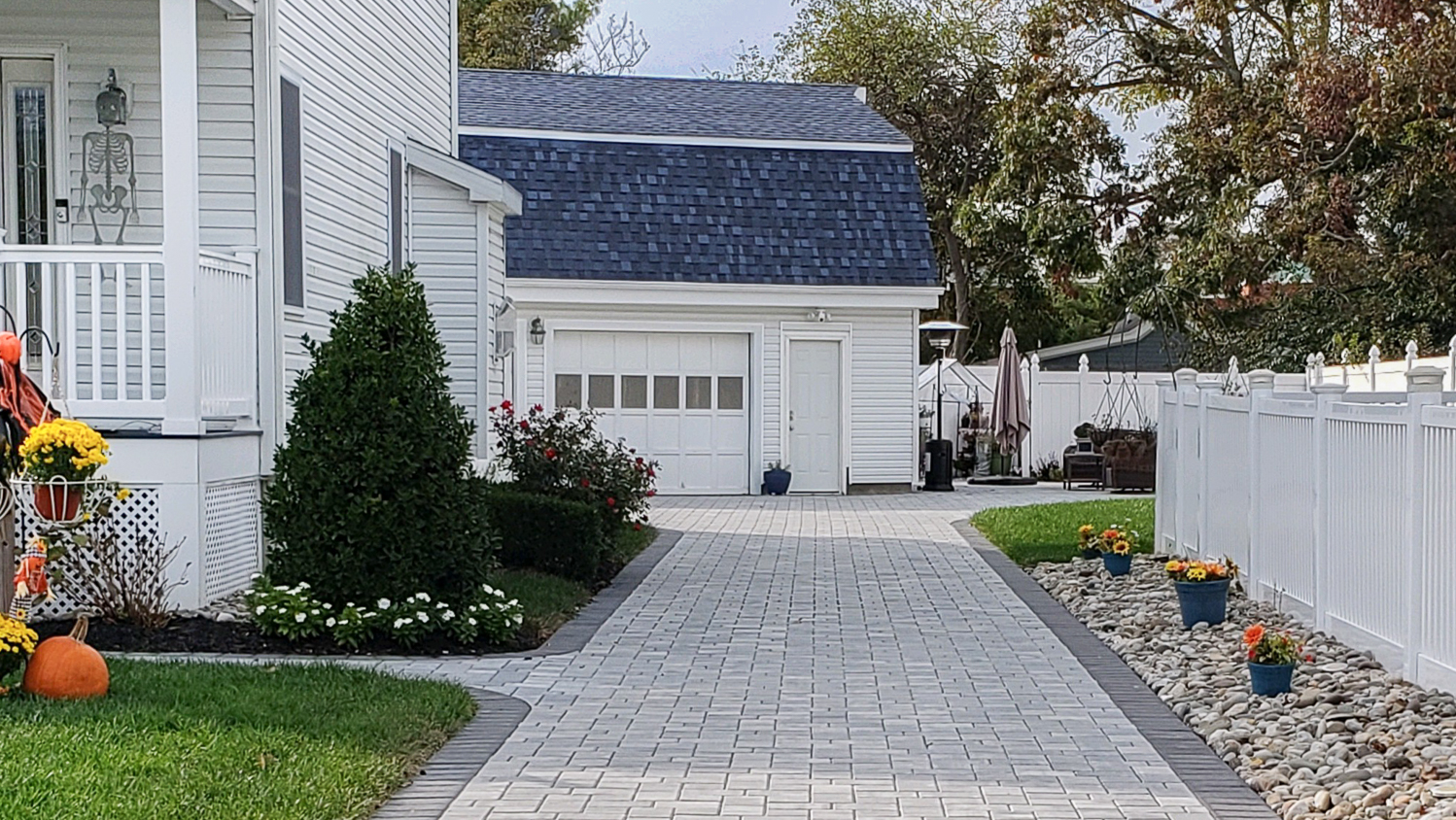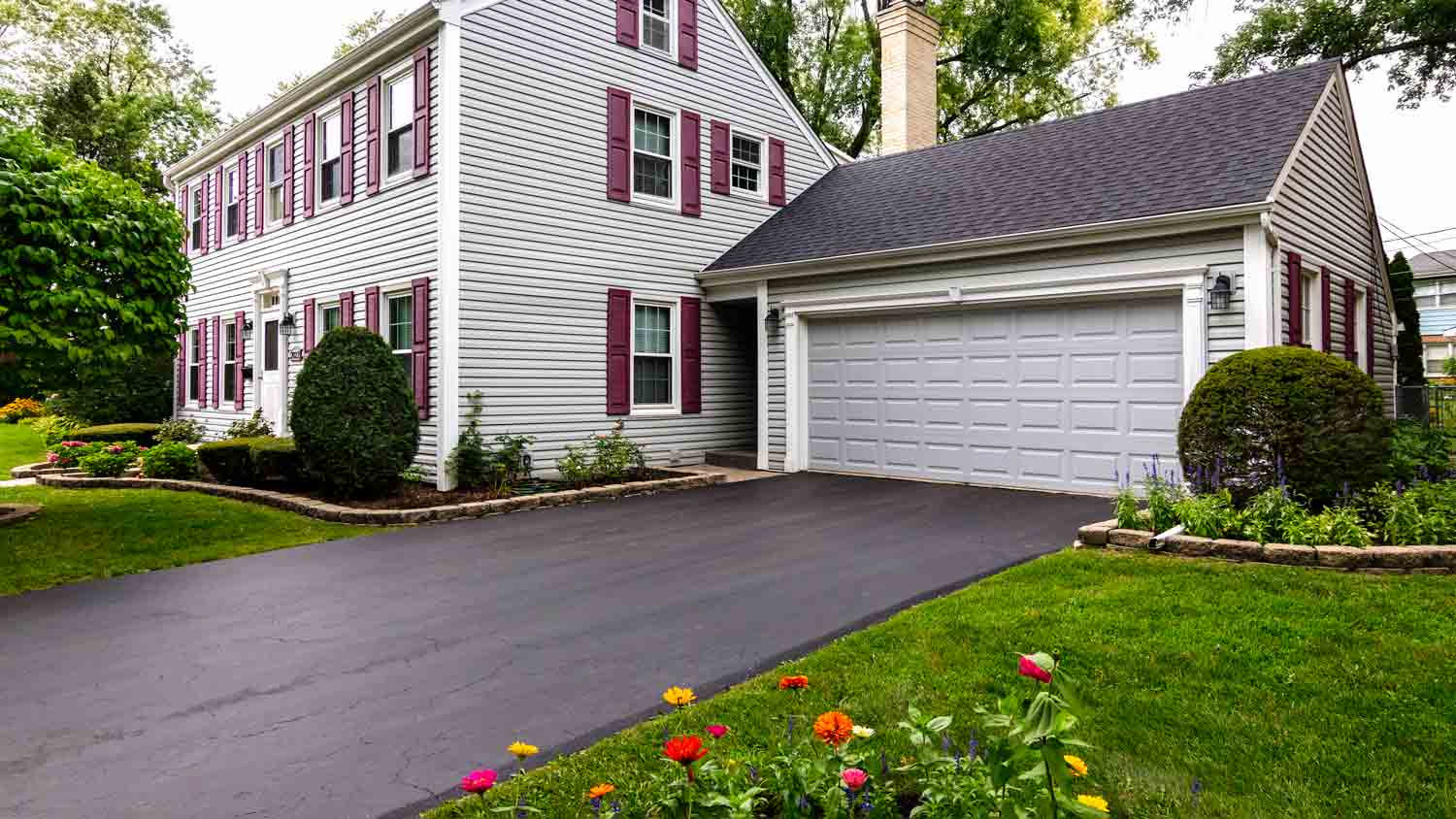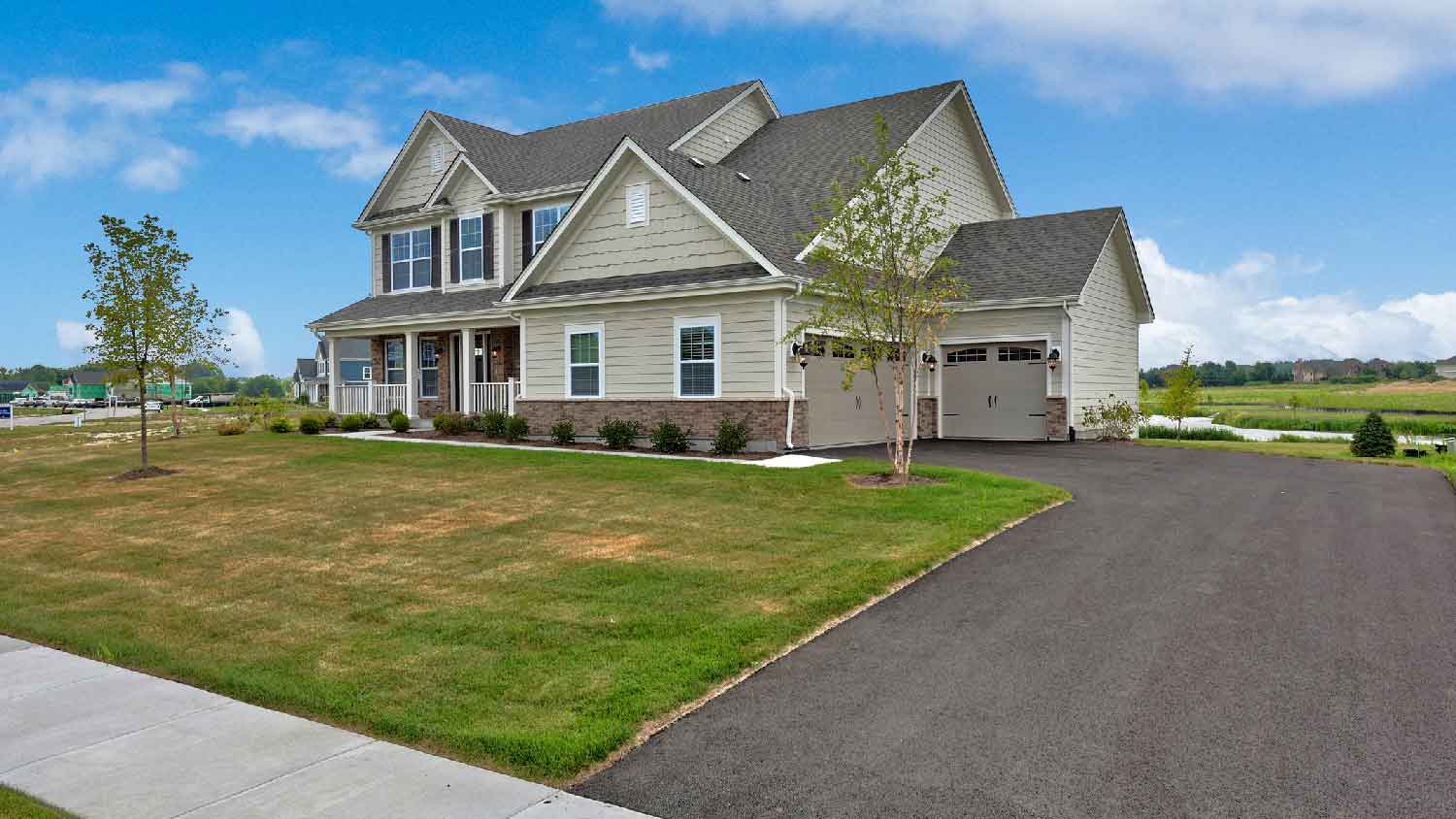
Discover the average paver driveway cost, including price ranges, key cost factors, and tips to help you budget for your driveway project.
Get your wheels turning about this repurposed material


Recycled asphalt is less expensive and more environmentally friendly than standard asphalt.
It requires sealing every two to three years to maintain its durable surface.
Gravel is less expensive than recycled asphalt but is dustier and doesn’t bond as well.
Work with an experienced recycled asphalt contractor to ensure a quality end result.
Recycled asphalt is exactly as it sounds: repurposed asphalt formed to make a new driveway. It costs less than standard asphalt and is more environmentally friendly. But it doesn't have the same durability and maintenance as standard asphalt. Learn all about recycled asphalt driveways, their pros, cons, and costs to determine if it's the right material for your driveway.
Recycled asphalt comes with its own appearance, cost, and level of maintenance. Learn about the benefits and drawbacks of recycled asphalt before choosing it for your driveway.
Less expensive than standard asphalt and concrete
Lasts nearly as long as standard asphalt with proper maintenance, usually up to 20 years
Environmentally-friendly, as it lowers greenhouse emissions by lessening the production of new asphalt
Bonds together better than loose materials such as gravel, forming a semi-permanent driveway
Holds up well in wet and snowy climates, limiting pooling and flooding
Beautiful, unique driveway that looks like a mix between gravel and asphalt
As durable as standard asphalt and holds up to heavy vehicles
Less likely to experience cracking and rutting
Can harden unevenly over time, causing deterioration and bumpiness
Not as deep of a black color as standard asphalt
Quality can depend on how it was recycled and what was recycled
Requires replacing some of the crushed asphalt every few years and raking loose pieces into place
Requires resealing every two to three years
Can form potholes or divots after extended use
More difficult snow removal
Can contain foreign objects due to recycled nature

Recycled asphalt driveways cost $6.20 to $8.75 per square foot, including installation. For comparison, standard asphalt costs $7 to $13 per square foot, including installation. Because of the rising price of oil, standard asphalt costs considerably more. Gravel, for comparison, costs $1.25 to $1.80 per square foot, including installation.
If you need to remove an existing asphalt driveway, your contractor may be able to use some of the reclaimed materials. You may pay less for materials to put toward the extra labor costs involved with removing a driveway.
Before you roll out the black carpet, make sure you've done your due diligence.
Check with your local asphalt paving contractor to ensure the asphalt they use is from a reputable recycling facility.
Ask to see examples of recycled asphalt driveways the contractor installed.
Compare the look of recycled asphalt to standard asphalt and gravel to determine the look you prefer.
Consider that standard asphalt lifespan is 15 to 30 years, whereas the lifespan of recycled asphalt is up to 20 years.
Keep in mind that it’s difficult to pave over recycled asphalt if that’s a project you want to do in the future. The cracks and unevenness show through the new surface, so full removal of the recycled asphalt is necessary.
Snow removal can be more time-consuming, as you need to be careful not to damage the asphalt's surface.
Always check your city’s local ordinances about driveway guidelines, including width and thickness.
Installing a driveway is a labor-intensive process. It requires special, heavy equipment at nearly every step of the process, from leveling the area to laying fresh asphalt. If you attempt to install recycled asphalt yourself, you could end up with a weak driveway or damage your home’s foundation. Hire a local driveway paving pro to ensure you end up with a driveway that is durable, long-lasting, and built to code.
Before you hire a driveway paving pro, you should ask these questions to understand their work history, licensure, and how they will approach the project.
Are you licensed and insured?
Can you show me examples of your past work?
How long have you been in business?
How much will my project cost, and what are the payment terms?
Are there any permits to worry about?
What materials do you use?
Do you offer a warranty on the materials?
Can you share some references?
Be sure to get quotes from at least three contractors before selecting one to handle your asphalt driveway.
From average costs to expert advice, get all the answers you need to get your job done.

Discover the average paver driveway cost, including price ranges, key cost factors, and tips to help you budget for your driveway project.

Don’t knock it until you try it. A heated driveway can save you a lot of manual labor in colder months. Here’s a breakdown of the cost of a heated driveway.

The cost of a tar and chip driveway falls between gravel and asphalt. Is this unique process the happy medium you've been looking for? Let's take a look.

Are you wondering, “How much asphalt do I need?” Our calculator will help you plan for your paving project so you know exactly what to expect.

Asphalt is the best driveway material for cold weather, but there are times when other materials may be a better fit. Get the details in this article.

Learn how to keep your asphalt driveway protected longer as we compare the performance of water-based vs. oil-based sealer for a driveway.